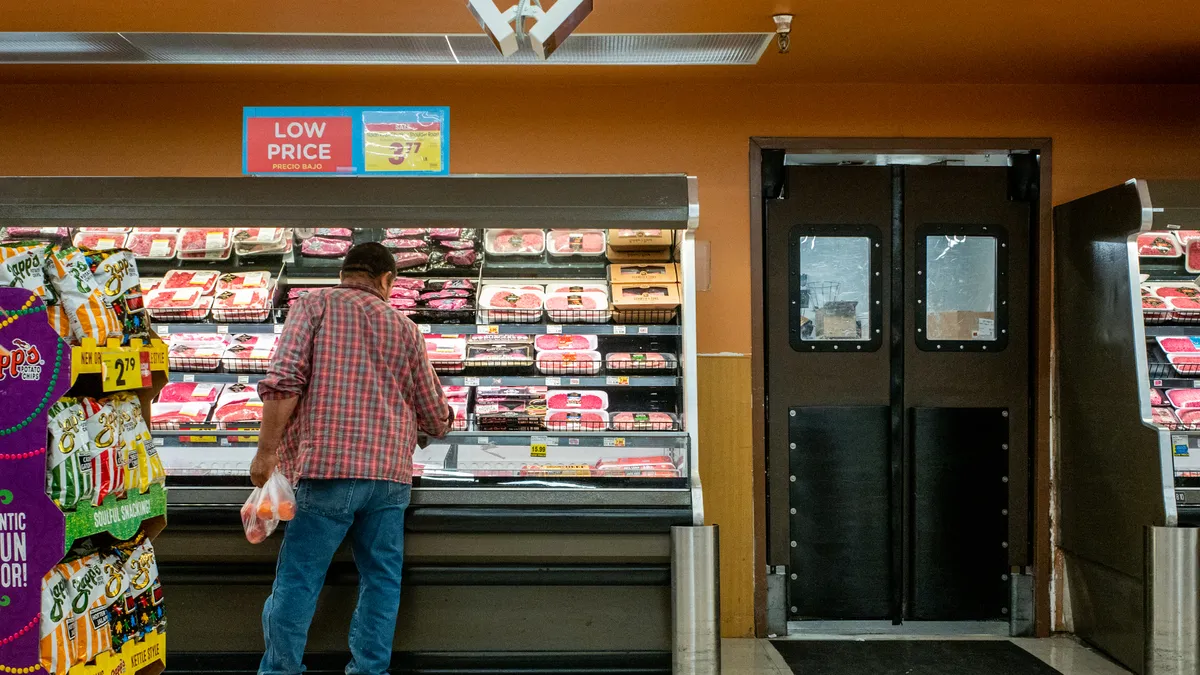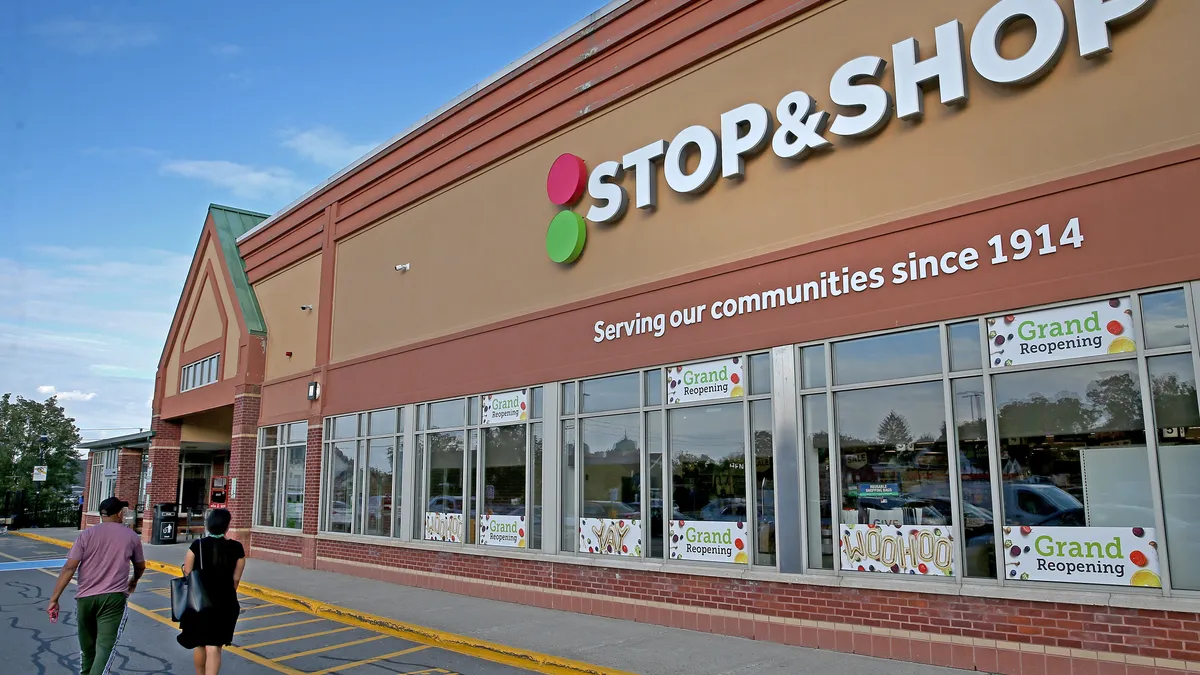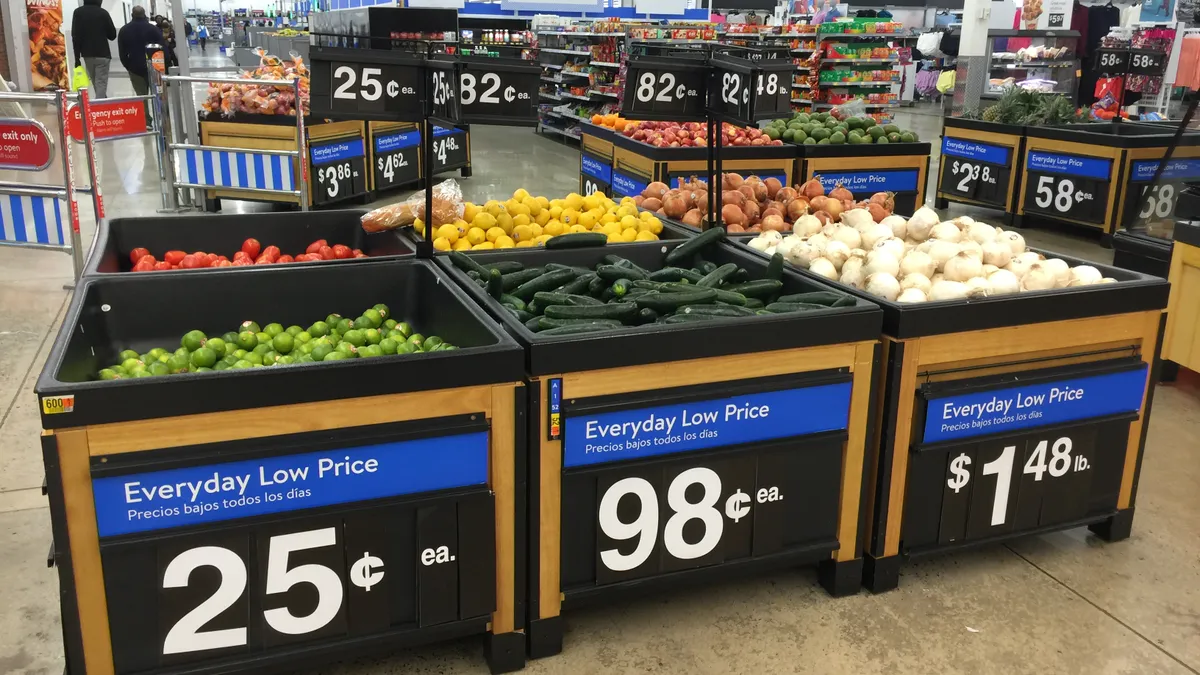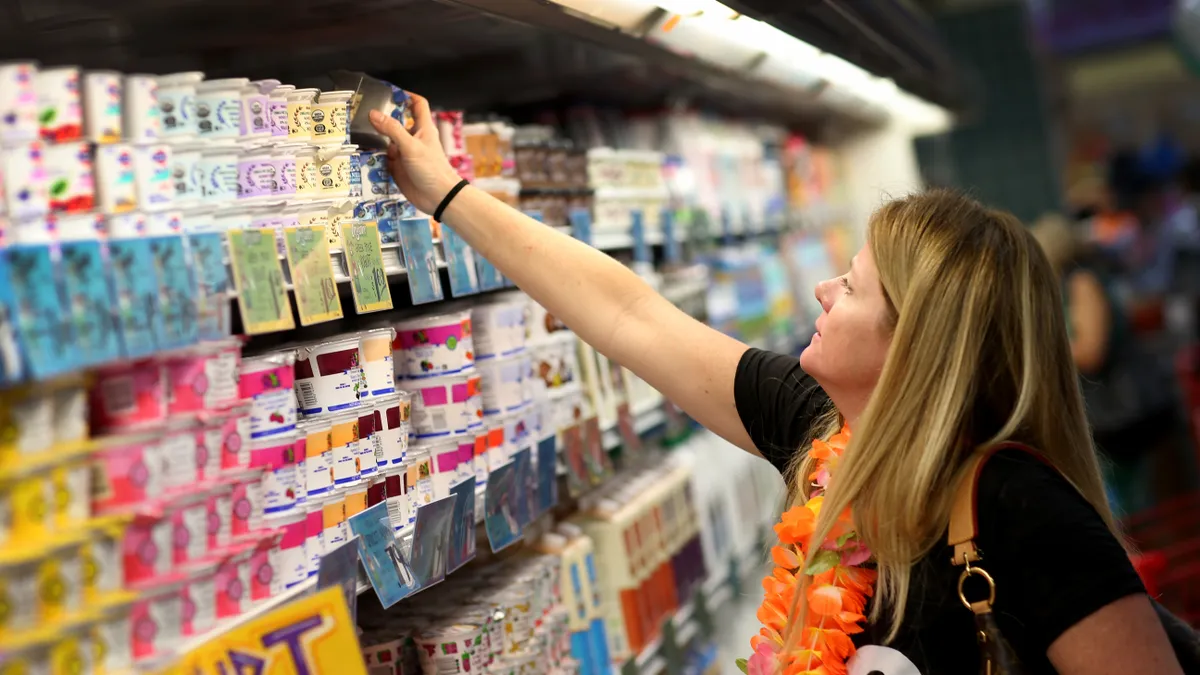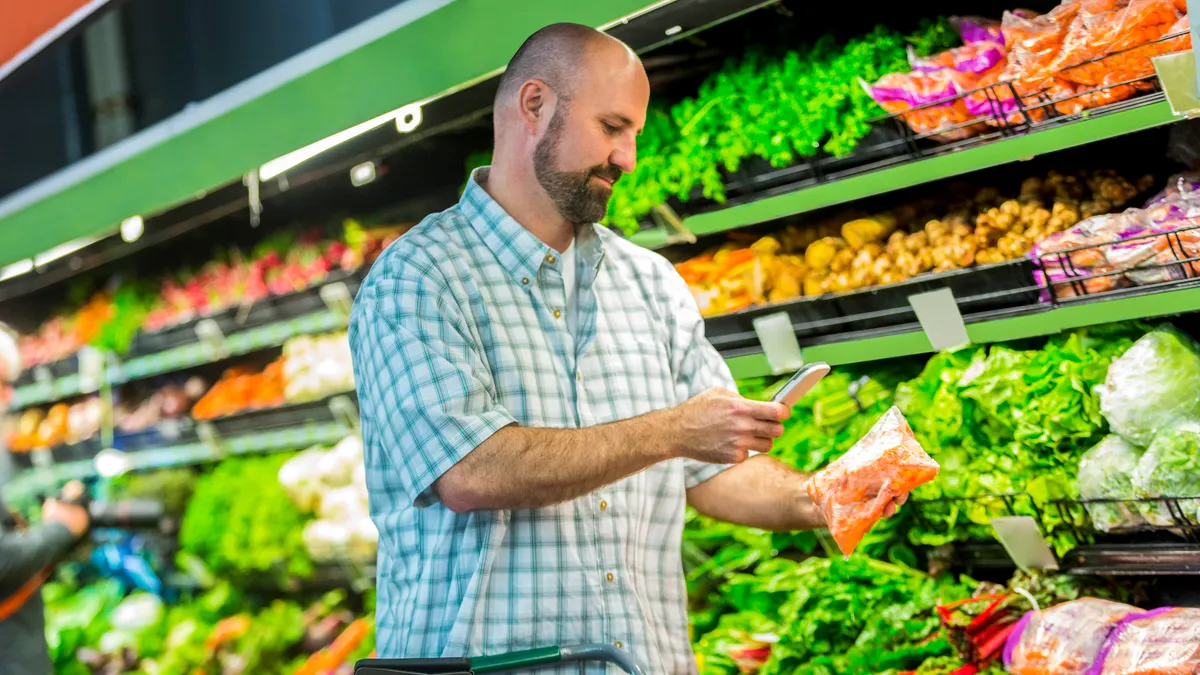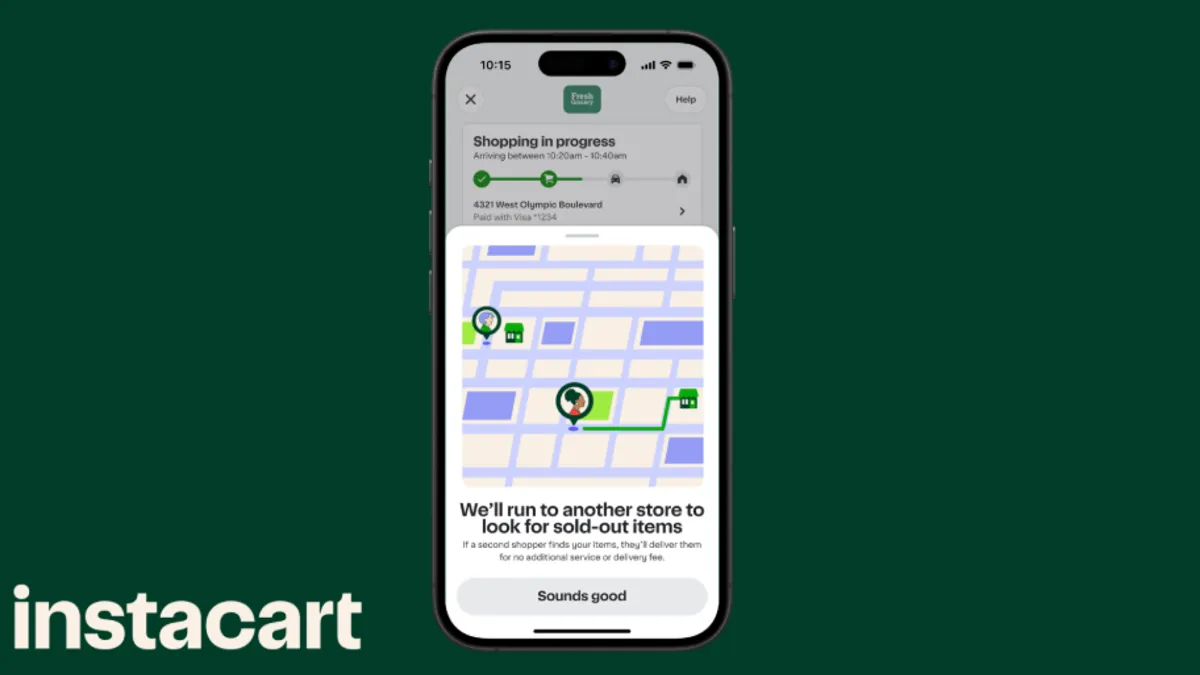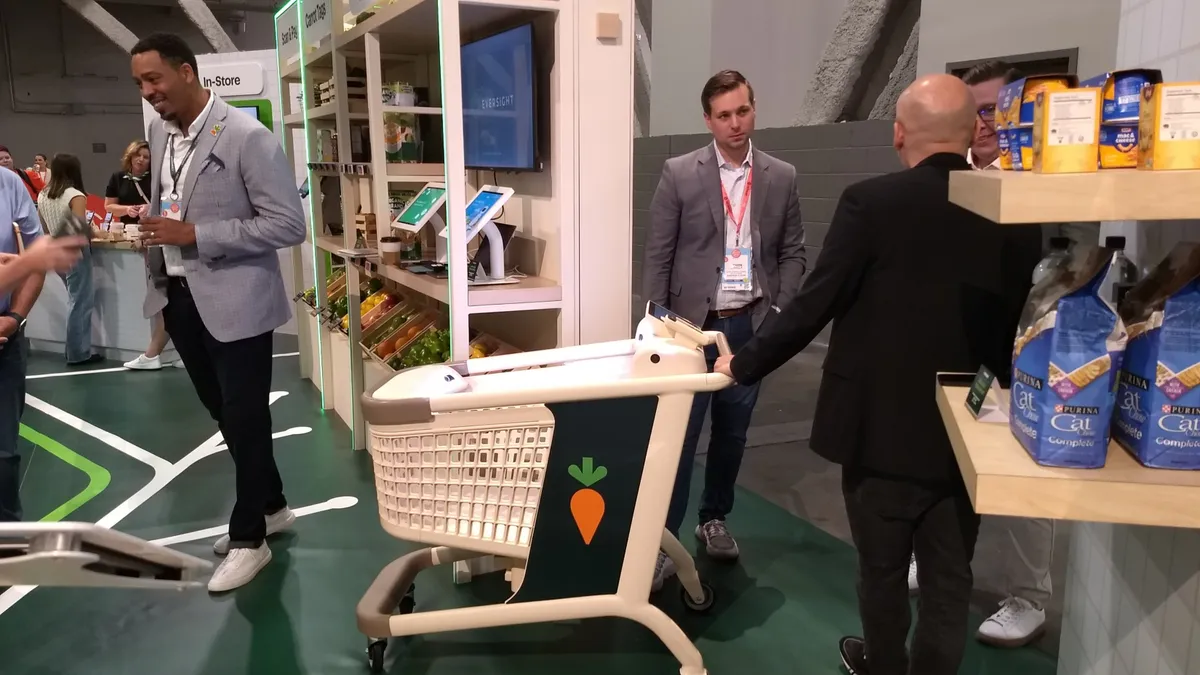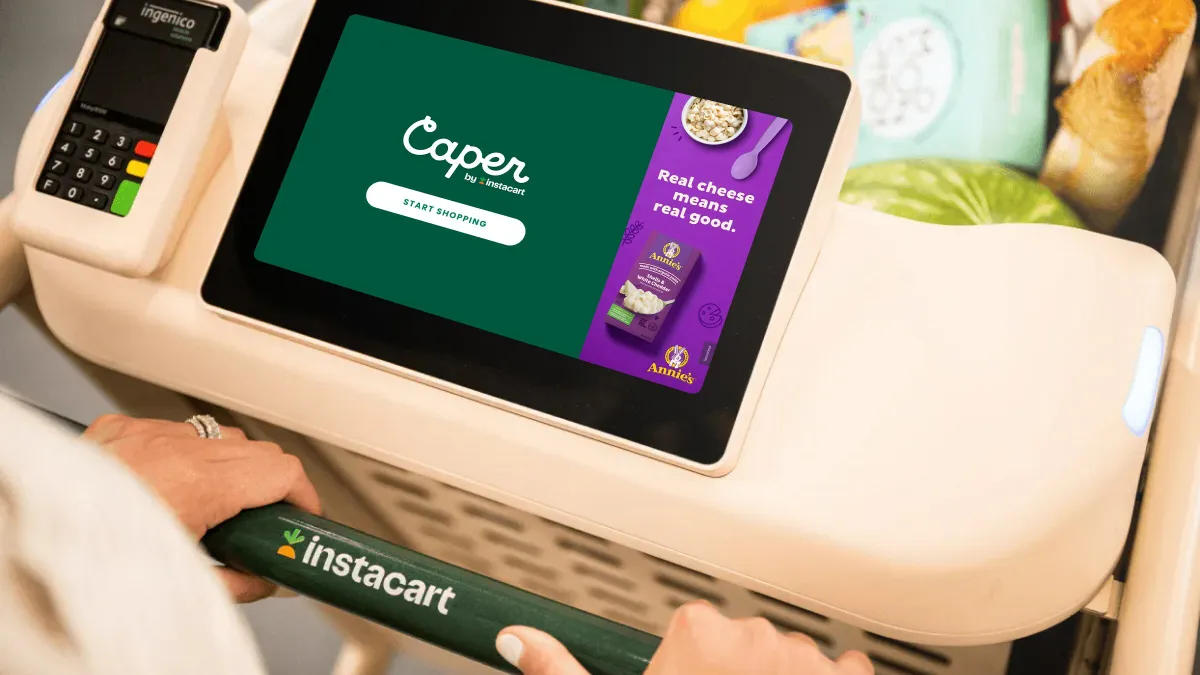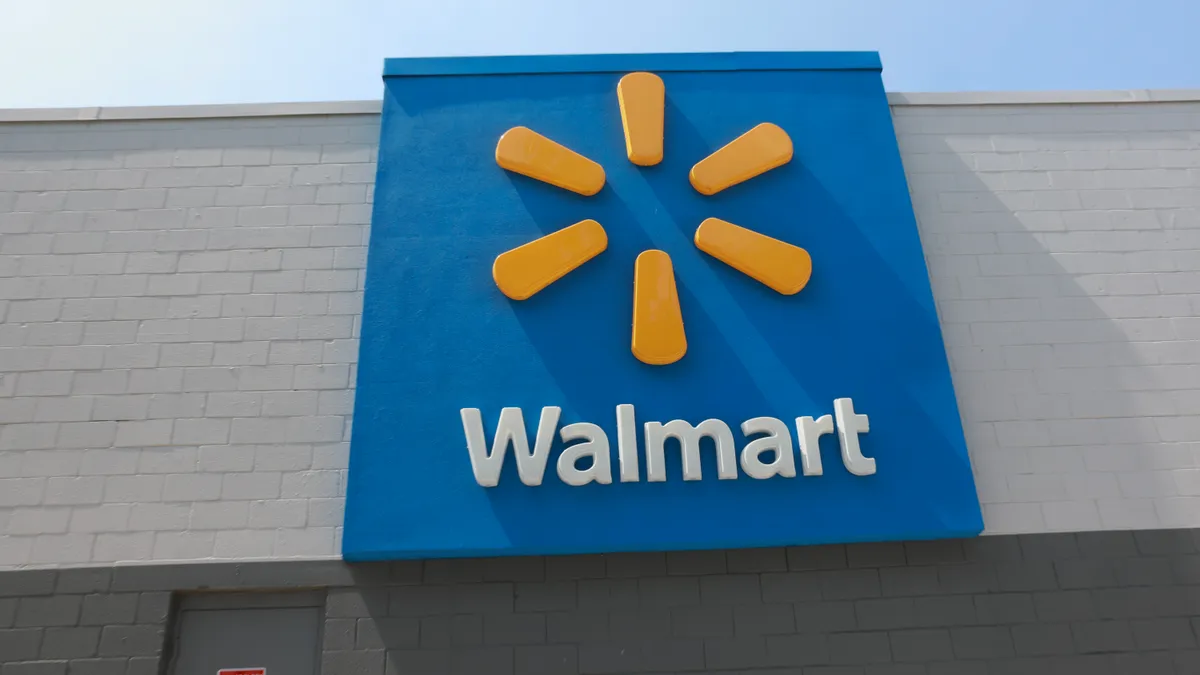The Friday Checkout is a weekly column providing more insight on the news, rounding up the announcements you may have missed and sharing what’s to come.
The inflation-centered narrative that has defined the economy since late last year took an attention-grabbing turn this week, as figures released by the federal government showed food prices accelerated at an even faster pace in July even as overall inflation calmed.
Refrigerated eggs, frozen meals, and butter and margarine are leading the way in driving prices higher, with prices in all three of those key categories rising at least 3% on a monthly basis in July, according to IRI. Prices for other foods, fresh citrus fruit, bacon and ice cream, came down last month compared with June, but remain sharply higher than they were a year ago.
Notably, prices are surging for groceries across the board at the same time that fuel prices — which play a key role in determining costs for producing and transporting food — have been coming down. The typical price for a gallon of diesel came down every week in July and is now at its lowest level since early March, according to the U.S. Energy Information Administration. Gasoline prices — which like food prices are a highly visible indicator of inflation trends for consumers — are also on the decline, dropping below $4 per gallon nationally this week, AAA reported.
Higher grocery prices haven’t entirely extinguished people’s appetite for spending on items that bring them pleasure. For example, premium and super-premium imported beer had a higher market share during the past several months than earlier in the year, IRI said. Ditto for high-priced frozen dinners and refrigerated drinks.
Data released by the Federal Reserve Bank of New York suggested shoppers believe grocery inflation might be ready to slow, even if they hardly expect prices to stop going up. People who participated in the bank’s monthly Survey of Consumer Expectations in July expected food prices to go up by 6.7% during the coming year, a figure that is down by 2.5 percentage points compared with June. That decrease represents the largest decline in people’s food price growth expectations since June 2013, the bank said.
Meanwhile, figures from Placer.ai show that growth in foot traffic at grocery stores and superstores in July significantly outpaced increases in visits to discount and dollar stores, reversing a trend seen earlier in the year.
✨@Walmart + @TortoiseHQ pic.twitter.com/jkKsVpCeFs
— Dmitry Shevelenko (@dmitry140) August 2, 2022
In case you missed it
Walmart taps robotics startup to test mobile parking lot vending machines
Since the uptick in pick-up and grocery delivery options, retailers like Walmart have been looking for ways to rekindle last-minute checkout line impulse purchases. Its solution: robots.
The remote-controlled robots that entered Walmart parking lots in late July roll up to customers’ car windows while they are waiting for their pick-up orders, according to Business Insider. The robots try to sell beef jerky and candy — typical items found hanging in the store’s checkout line — and shoppers can simply pay with their credit cards before grabbing their item.
The start-up tech company behind these sales clerk robots, Tortoise, initially intended them to be used for delivery services for companies like Instacart. However, Walmart, like many in-store grocers have been finding ways to incorporate robotic technology to help streamline operations.
Earth Fare reducing the price on hundreds of pantry essentials
Earth Fare plans to reduce the prices on hundreds of its pantry essentials in an effort to combat the growing issue of food insecurity in a partnership with Field Day, according to a recent press release.
Over 200 products will receive price reductions at Earth Fare locations and all are provided by Field Day. The Clean Food Security campaign launched at Earth Fare’s newest Cleveland store on July 27 and will reach all locations by mid-August.
“This is not a temporary sale, but rather a commitment to ensuring that our valued shoppers have access to clean, healthy foods,” Laurie Aker, Earth Fare’s director of marketing, said in the press release.
Aisle 24 checkout-free store launches in Toronto
Aisle 24, a cashier-less and fully automated grocery store has announced a new location in its home city of Toronto, according to an emailed press release.
Each Aisle 24 store is partnered with Axis Communications to create a store with high-tech security and a completely touchless shopping experience.
As stated in the press release, highlights of the new Toronto grocer include a cashier-less environment, video analytics that offer business intelligence insights to franchise owners and new security solutions.

Number of the week: $2 million
That’s the estimate for how much it will cost for Isom IGA in Isom, Kentucky, to reopen following severe flooding in the state, according to the Independent Grocers Alliance (IGA).
"The health department has already been here and condemned the whole store, so it has to be completely emptied and sanitized before we can even start to think about putting the store back," owner Gwen Christon told LEX-18.
The store is temporarily closed pending a rebuild. Isom IGA, which serves a community of about 1,400 people, is the only full-service grocery store for miles, per IGA.
Insurance will cover about a quarter of the estimated cost to reopen, said Nick Carlino, executive vice president of sales and merchandising for distributor MDI, according to IGA. The store is collecting donations via a GoFundMe and The Hometown Proud Foundation on PayPal.
What’s ahead
Wave of earnings
Second-quarter earnings calls continue with a string of retailers reporting results next week. Walmart, which announced last week layoffs affecting about 200 corporate employees following the cut to its profit outlook, will host its call Tuesday morning.
Up next, Target will hold its earnings call Wednesday morning. On Thursday morning, SpartanNash and BJ’s Wholesale Club will report their second-quarter earnings. We’ll be keeping an ear out for what CEOs have to say about inflation, supply chain and labor as challenges continue in those areas.
Trader Joe’s Union Vote, The Sequel
Two weeks ago, workers at a Trader Joe’s store in Hadley, Massachusetts, voted in favor of unionization, marking the first successful unionization effort by employees at the grocery chain. Later this Friday, employees at a store in Minneapolis will finish voting on whether to unionize. Stay tuned for the results.


